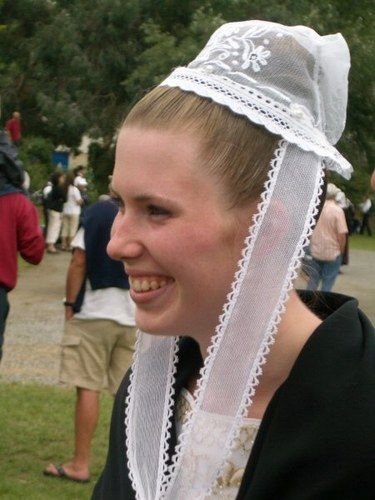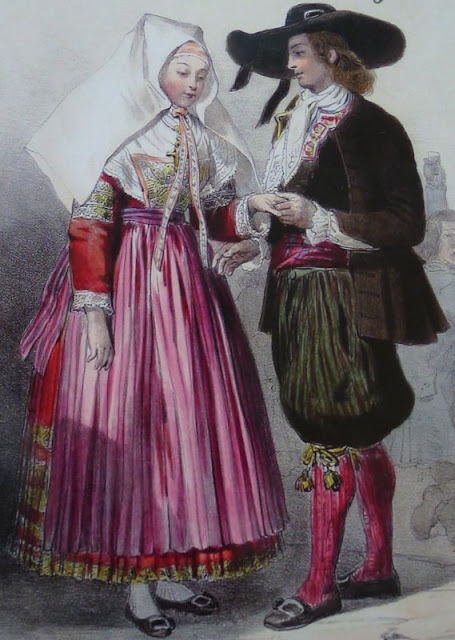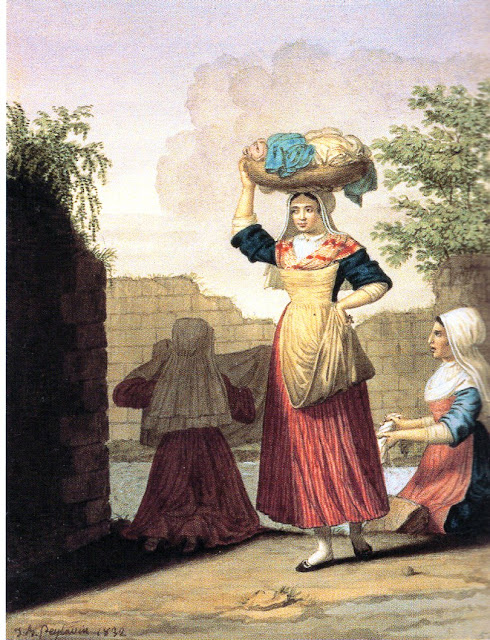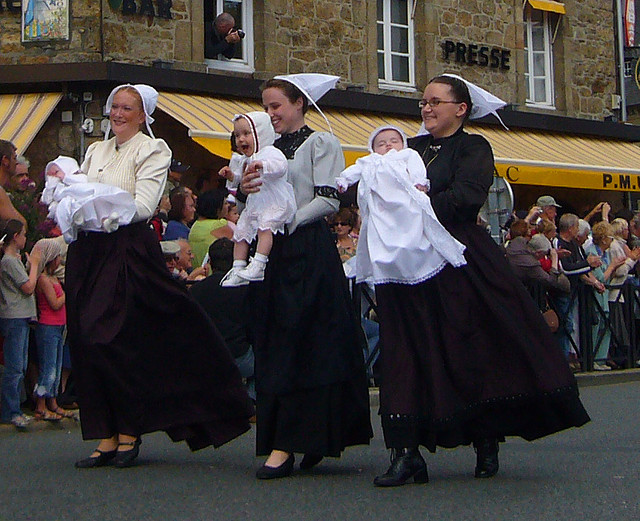Hello all,
A while ago I did a very general overview of Breton Costumes. Today I would like to revisit the subject in more detail. To that end I present this series of articles. Today, France is divided into départements. These are purely administrative divisions, and do not, for the most part, reflect the traditional culture of France. Because of that I will ignore them, and present the costumes according to the traditional Provinces and regions. Here are two maps of Brittany showing the nine traditional regions in Breton and in French.

Upper Leon
The costume of Upper Leon is also rather simple, and the coif is similar to that of Lower Leon, except that it has two lace bands that stand up from the coif on either side.
Pagan
In Pays Pagan, they often wear the 19th cent. version of the costume, which was very colorful. For some reason in the 20th cent. the colors changed to black and subdued hues.
Here is a view of the back of the coif.

In some communities they use a more modern version of the costume. Also, in some communities the cornet style coif is used. In this first image, we can see the bonnet worn by young girls. This is a very common usage. The very large Leonese shawl is still in evidence.
Here we can see women from three different communities.
Saint Pol de Leon
In Saint Pol, the costume is similar to that of Pays Pagan, but the coif is shorter, and of a different shape.
The cornet is sometimes used in this region as well. Here is a photo of a triple wedding in the more sober colors of the 20th cent.
Later in the 20th cent the coif became very simple. It sometimes had two peaks.
Ile de Batz
Not to be confused with Bourg de Batz, which is on the southern coast. The coif of the island is distinguished by its double peak, similar to some on the mainland coast.
Taule
The coif of Taule started out very similar to that of St. Pol.
In Henvic, the coif is a bit different.
In Morlaix, the typical coif of the region had the back of the cap extended, forming a sort of bag that hangs off the rear of the coif.
The formal coif is similar to that of Tregor, where two lappets are pinned to the top.
Bro-Dreger
Le Trégor in French
The costume region does not exactly correspond to the borders of the province.
Tregor seems to have the same costume over all of its territory with minimal changes. The costume also extends into northwestern Goelo and part of Gernew or Cornouaille. The coif, toukenn, consists of a small bag with two pointed extensions. The exact angle and width varies with locality,.

The formal coif, katiolle, has large wings pinned to the top.

Ile de Brehat
The costume of the Isle of Brehat is practical and workaday.





















































































































































